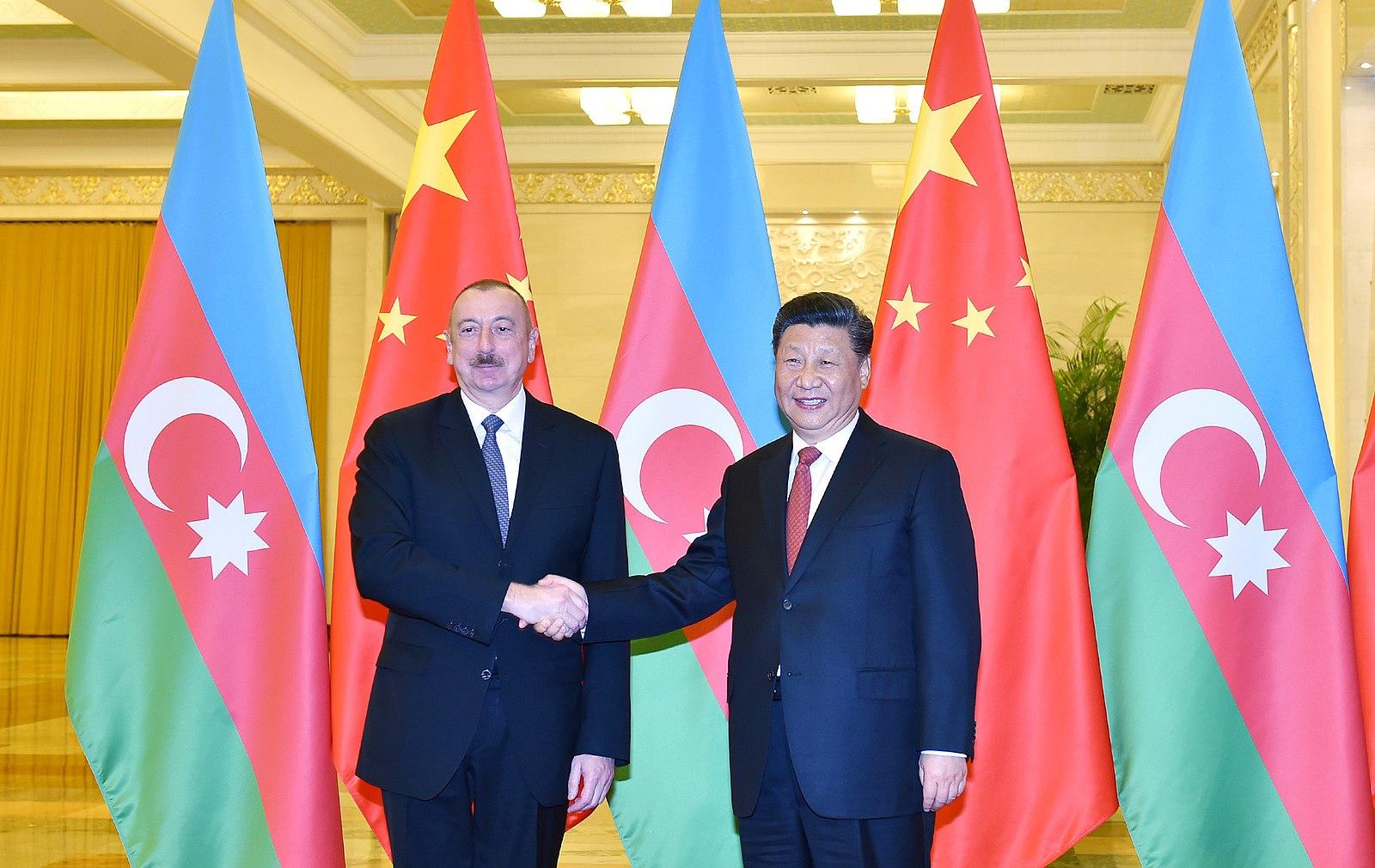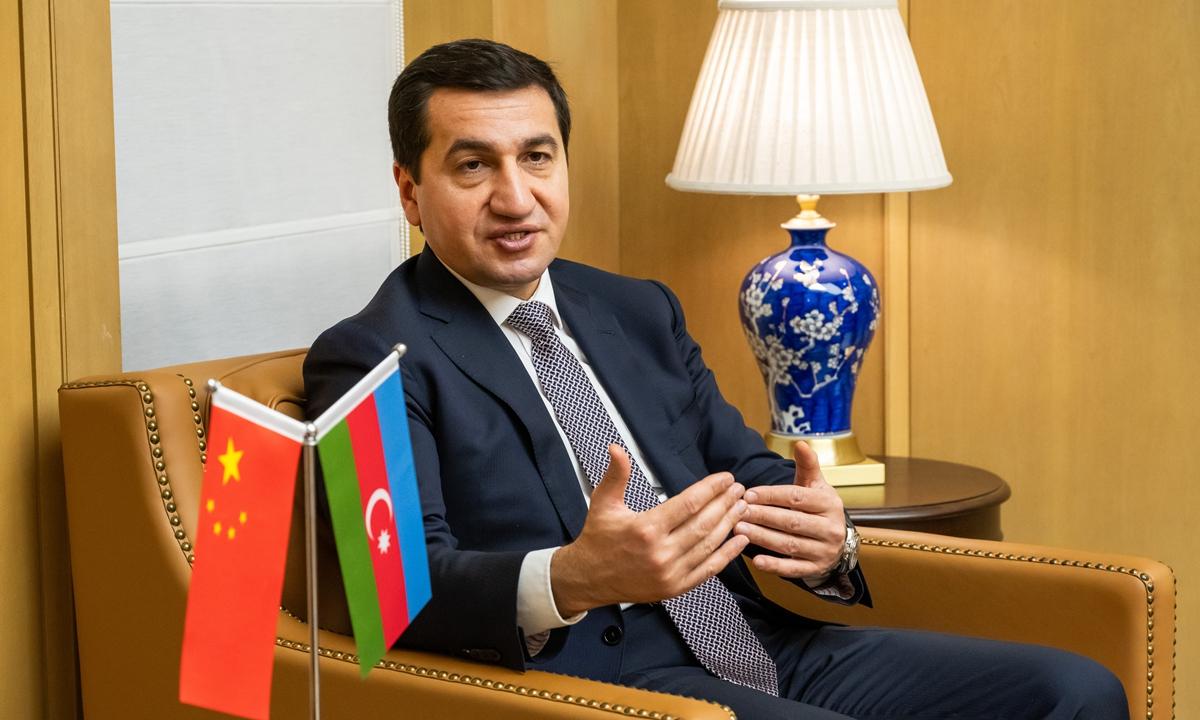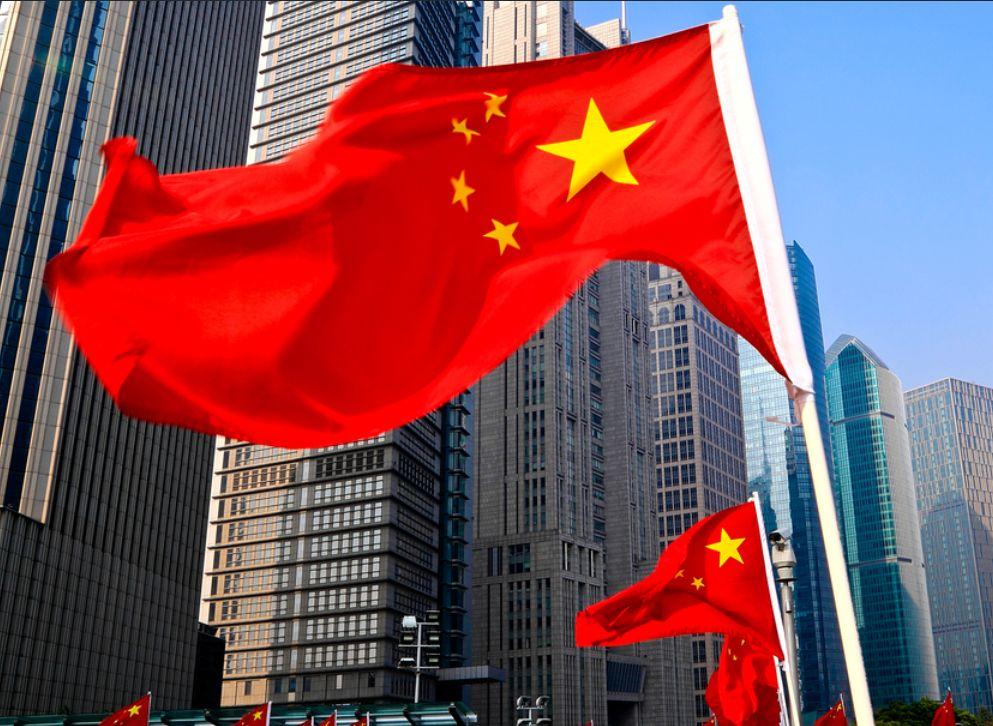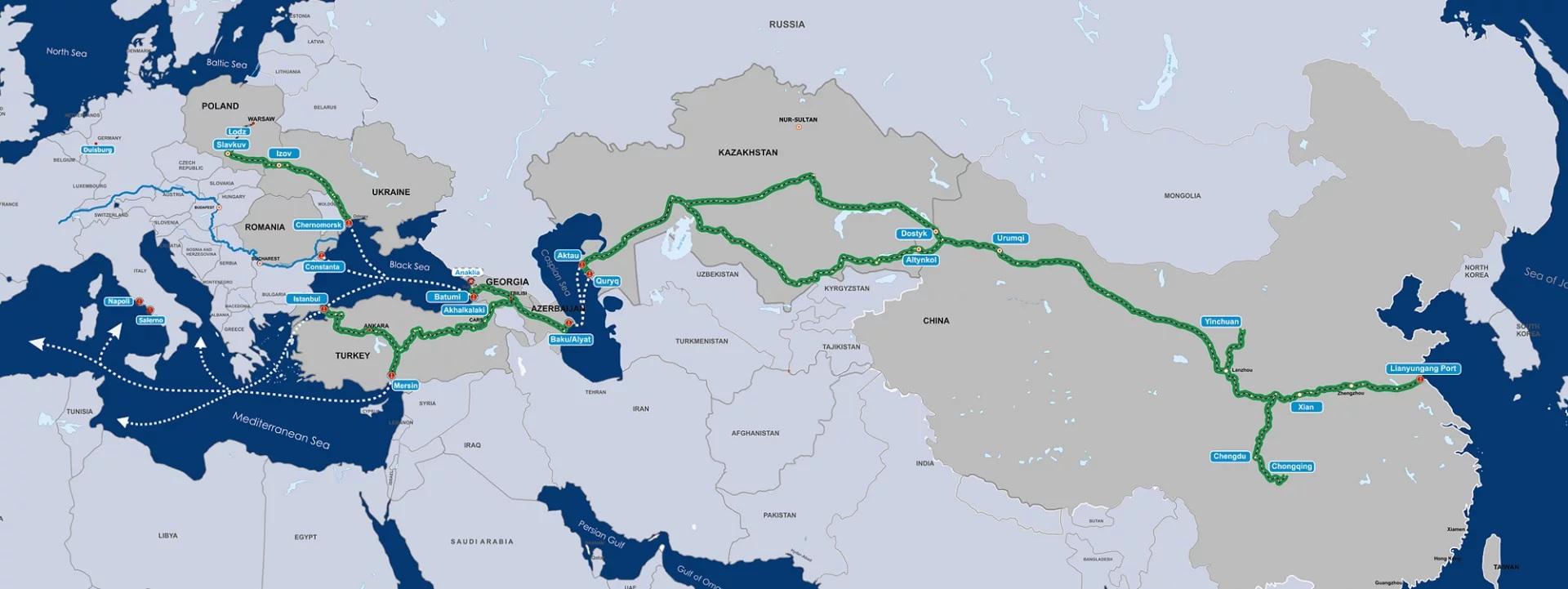Azerbaijan, China strengthen economic ties From trade to investment
Traditionally friendly relations between Azerbaijan and China have been contributing to the upward development of trade and economic relations between the two countries for years. In the recent period, the states have aimed at qualitative diversification of business cooperation: it is planned to increase the investment component, create joint ventures in the field of industry, high technology, "green" energy, as well as jointly strengthen the logistics of the Middle Corridor.
Hikmet Hajiyev, Assistant to the President of Azerbaijan, head of the Foreign Policy Department of the Presidential Administration, told the Chinese publication Global Times about the promising directions of the Azerbaijani-Chinese business agenda.
For many decades Baku and Beijing have been forming bilateral interstate relations in an atmosphere of friendship, respect and mutually beneficial cooperation. In recent years, this solid base of interstate relations backed by the political will of the two leaders - President Ilham Aliyev and President Xi Jinping - has contributed to the strengthening of mutually beneficial Azerbaijani-Chinese business ties, bringing them to a qualitatively new level.

"Cooperation between Azerbaijan and China is characterized by excellent political ties, and there is close cooperation in areas such as trade, transport and energy. Nevertheless, the potential for business partnership between the states is much higher," Azerbaijani presidential aide Hikmet Hajiyev told the Global Times recently. - "We would like to see more Chinese companies in Azerbaijan: Chinese business is already involved in diversifying the domestic economy, but we expect more as Azerbaijan is moving towards green growth".
It is pertinent to recall here that Azerbaijan is China's largest trading partner in the South Caucasus region: the country accounts for almost 45% of all regional trade. In the prosperous year of 2019, bilateral trade turnover reached $2.18 billion, and despite a tangible decline during COVID-19, in the post-pandemic period, Azerbaijan-China trade and economic ties rapidly recovered, exceeding pre-crisis indicators. Thus, already in 2022, trade turnover between the countries amounted to $2.159 billion, which is 21.3% higher than in 2021.

Last year, Azerbaijan's trade with China reached record highs, exceeding $3 billion, while the Celestial Empire ranked second after Russia in terms of imports to the country, with the share of Chinese supplies in the total imports amounting to 17.49%.
Despite the fact that Chinese products still account for the lion's share of trade turnover, the dynamics of Azerbaijani exports increased by 40% last year. In particular, in 2023, the main volume of Azerbaijani exports to the Chinese market fell on petroleum coke, primary polyethylene, iodine, equipment and components (including air and gas compressors), jet fuel, organic chemicals, cotton fibre, medicinal plants and perfumes, as well as food products - chocolate, cigarettes, pomegranate juice, honey, products of the wine industry, etc.
It should be noted here that the Chinese market, despite its enormous capacity (the country's population exceeds 1.4 billion), is considered one of the most demanding for imported products in terms of price-quality ratio due to the development of domestic production and low prices.
Nevertheless, Azerbaijani exporting companies manage to occupy new trade niches in the Chinese market every year. Not the least role in this was played by the strategy of the Export and Investment Promotion Agency (AZPROMO), which created an extensive system of trade and wine houses in China to promote domestic industrial and agricultural products under the Made in Azerbaijan brand.
In particular, Azerbaijani trade houses operate in Qingdao, Chengdu and Zhangjiajie, while branches of Azerbaijani trade houses operate in Shanghai, Harbin, Jinan and Wuhan, and three wine houses have been established in Urumqi and Shanghai. All these structures play a huge role in supporting Azerbaijani trade missions, participation of Azerbaijani companies in Chinese exhibitions, organization of advertising and promotion campaigns in the leading trade networks of the Celestial Empire.
However, along with the development of trade today, Baku and Beijing have set a goal to expand business ties in the direction of joint endeavours in the investment and production spheres. "Chinese companies are implementing projects in Azerbaijan in various sectors, including renewable energy, industrial production, and cooperation has also been established within the framework of industrial parks," Azerbaijani Economy Minister Mikayil Jabbarov said recently in an interview with Chinese TV channel CGTN.

Indeed, the two countries have accumulated a significant record in the field of capital attraction and realization of joint undertakings over the past decades. In particular, Azerbaijan has invested about $1.7 billion in the Chinese economy, and Chinese investments in Azerbaijani projects exceed $800 million, and about 275 companies with Chinese capital have been registered in our country.
In turn, Chinese contractors have participated in various projects in Azerbaijan with a total value of over $600 million. These dynamics has only intensified in recent years with the start of reconstruction works in the Karabakh region: dozens of Chinese companies have applied for participation in infrastructure projects, including the world-famous Huawei company, which is already actively involved in "smart village" and "smart city" projects in the territories liberated from occupation.
In an interview with Global Times, a number of priority directions of Azerbaijani-Chinese economic cooperation were outlined, the realization of which state structures and business circles of the two countries have been discussing in the recent period. Among them are initiatives within the framework of the Trans-Caspian International Transport Route (TITR), an important component of China's logistics within the "One Belt, One Road" project.
Today, the TITR is actively used for the transhipment of Chinese container multimodal block trains transiting through Central Asian (CA) countries, the South Caucasus to Türkiye. To optimize transit opportunities of the TITR route, the element of "single window" - standardization and simplification of logistics and cross-border procedures - is extremely important, this is especially important for Chinese companies seeking to deliver their goods to Europe faster and cheaper, and in this regard, the possibility of concluding a trilateral agreement between Baku, Astana and Beijing to optimize transit traffic along the TITR is being studied.

"The Middle Corridor can become an important link between China and the European Union, with Azerbaijan and the Central Asian countries along the Caspian and Black Seas being good partners in establishing ties. This fits well with the 'One Belt, One Road' route and emphasizes the strategic partnership between China and Azerbaijan," Hajiyev emphasized.
According to him, digital transformation and green transition program occupy a leading place among Azerbaijan's national priorities based on sustainable development goals, and within these programs, China is considered as a leading partner of the country.
In particular, the electric vehicle industry of the Celestial Empire is one of the leading in the world: Azerbaijan buys electric buses and other equipment in China and is very interested in localization of the production base in partnership with Chinese companies. The partnership with Chinese companies for the establishment of enterprises in Azerbaijan for the production of equipment in the field of renewable energy sources (RES) is no less promising.
The prospects for such cooperation with Chinese partners are very high. Being the world's leading investor, today Beijing is implementing a large-scale concept of "Global Initiative for Development and Exchange of Technologies and Achievements with Developing Countries", and Azerbaijan, due to its geography, powerful resource base and favourable investment policy, has significant advantages attractive for expanding cooperation with Chinese business.








